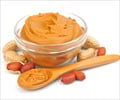Sublingual immunotherapy can be a promising treatment for peanut allergies in children.It reduce the accidental exposure risk and help provide a strong desensitization effect.
- Sublingual immunotherapy (SLIT) can provide strong desensitization in children with peanut allergies, reducing the risk of accidental exposures to peanuts
- A 4mg dose of peanut SLIT was found to be effective and safe in children, and was not associated with severe side effects requiring epinephrine
- SLIT is not a cure for peanut allergies, but it may provide a buffer of protection against unexpected situations and could help a lot of peanut-allergic patients and their families
About Food Allergy
Go to source). The study led by Edwin Kim, MD, Associate Professor of Pediatrics at the UNC School of Medicine, showed that a 4mg dose of peanut SLIT provides strong desensitization that could protect the majority of children from accidental peanut exposures. The clinical trial, which was published in the Journal of Allergy and Clinical Immunology, found that the treatment was safe and not associated with severe side effects requiring epinephrine.
The aim of this open-label, prospective study is to evaluate the efficacy and safety of 4-mg peanut SLIT. It also aimed to study the persistence of desensitization after discontinuation of therapy. The study participants were 54 children who were given 4mg of peanut SLIT for 48 months. The children then underwent a double-blind, placebo-controlled food challenge where they were given 5000mg of peanut protein to see if they had become less allergic.
Results of the Study
The results showed that after the peanut SLIT, the children were able to tolerate more peanut protein than before. The mean amount they could tolerate increased from 48mg to 2723mg. 70% of the children achieved clinically significant desensitization (meaning they could tolerate more than 800mg of peanut protein), and 36% achieved full desensitization (meaning they could tolerate 5000mg of peanut protein).The study also found that the effects of the treatment lasted for more than 17 weeks after it was stopped. However, the time it took for the children to become allergic again varied, with the median time being 22 weeks (2✔ ✔Trusted Source
Open-label study of the efficacy, safety, and durability of peanut sublingual immunotherapy in peanut-allergic children
Go to source).
“We know that life happens and there may be times where the treatment is missed,” Kim said. “It could be because of vacation, or being sick, or just forgetting. This exciting new data shows that the changes to the immune system after peanut SLIT may not be permanent, but they are long-lasting.”
Dr. Kim says that this not only gives us reassurance in the case of missed doses, but also may point to novel dosing strategies in the future (3✔ ✔Trusted Source
Effectiveness of sigmoidoscopy for assessing ulcerative colitis disease activity and therapeutic response
Go to source).
The treatment also caused changes in the children's immune system, such as changes in the levels of certain antibodies and cytokines. The children also experienced some mild side effects, such as itching in the throat, but no serious reactions occurred.
Conclusion
In this open-label, prospective study, peanut SLIT was safe and induced clinically significant desensitization in most of the children, lasting more than 17 weeks after discontinuation of therapy. These findings suggest that peanut SLIT may be a promising long-term management strategy for peanut allergy.References:
- About Food Allergy - (https://www.niaid.nih.gov/diseases-conditions/food-allergy)
- Open-label study of the efficacy, safety, and durability of peanut sublingual immunotherapy in peanut-allergic children - (https://pubmed.ncbi.nlm.nih.gov/36828080/)
- Effectiveness of sigmoidoscopy for assessing ulcerative colitis disease activity and therapeutic response - (https://www.ncbi.nlm.nih.gov/pmc/articles/PMC6571418/)
Source-Medindia
















